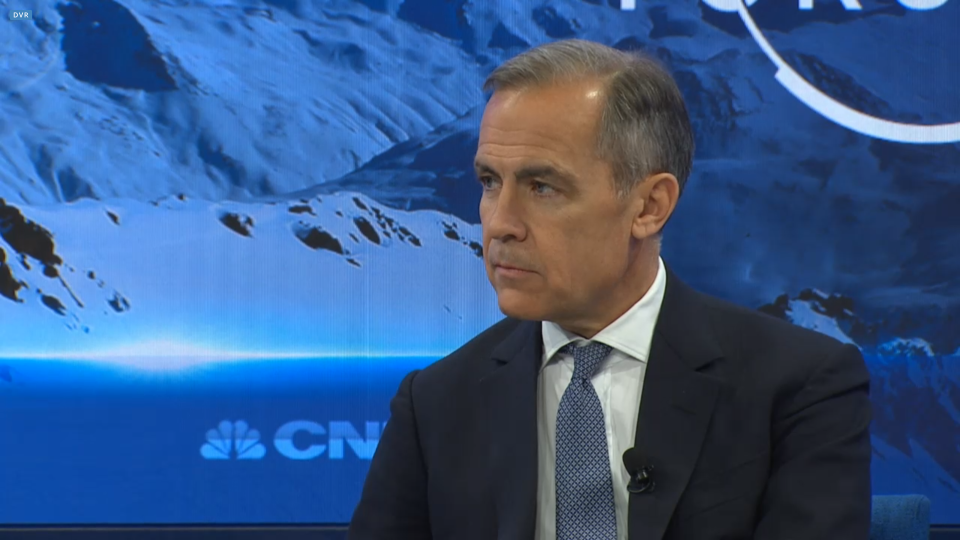Mark Carney tells Davos rate change 'not automatic' on hard Brexit

It is “not automatic” that interest rates will rise, fall, or stay unchanged if Britain crashes out of Europe without a deal, according to the governor of the Bank of England.
Mark Carney told a panel event at the World Economic Forum (WEF) in Davos that the central bank would have to balance the risk of tariffs and a plunging pound driving up inflation with the need to support growth.
“One of the things we caution is — it’s not automatic which way policy would go in event of a hard Brexit. We’re not predicting that but we’ve got to prepare for that,” Carney said.
“The reason is that if we go through period of de-integration, deglobalisation, and reduction in trade openness — that’s akin to a supply shock.
READ MORE: Alarming forecast for the global economy as Davos begins
“It’s not just that demand is going down, but that supply is going down at same time. On top of that you have the exchange rate’s effect on inflation and tariffs’ effect on inflation,” Carney said.
“So the central bank in that circumstance has to make the right judgement about the right path of bringing inflation back to target, while doing what it can to support. It’s not an automatic approach.”
Moderator Geoff Cutmore of CNBC also asked Carney if the Bank of England had “misunderstood” something in its pre-Brexit forecasts, suggesting its figures had been “pessimistic” compared to what happened.
But Carney defended the figures, saying they had been “broadly borne out” on a fall in sterling, rising inflation, and “absolutely flat” business investment since the referendum.
He spoke at a CNBC discussion event on the future of global finance alongside IMF managing director Christine Lagarde and UBS chief executive Sergio Ermotti.
READ MORE: What is Davos? The 2019 World Economic Forum explained
Carney’s remarks come after reports that a third of UK prime minister Theresa May’s cabinet are also at the global conference, hoping to line up trade deals, as well as promote British business and influence after Brexit.
One government minister said he wanted to show there was “more to the UK than Brexit” as he defended his trip to this year’s Davos summit.
International trade secretary Liam Fox said he would meet with his global counterparts in the hope of confirming that Britain’s existing trade deals worldwide will continue after Brexit, despite being signed via the EU.

 Yahoo Finance
Yahoo Finance 